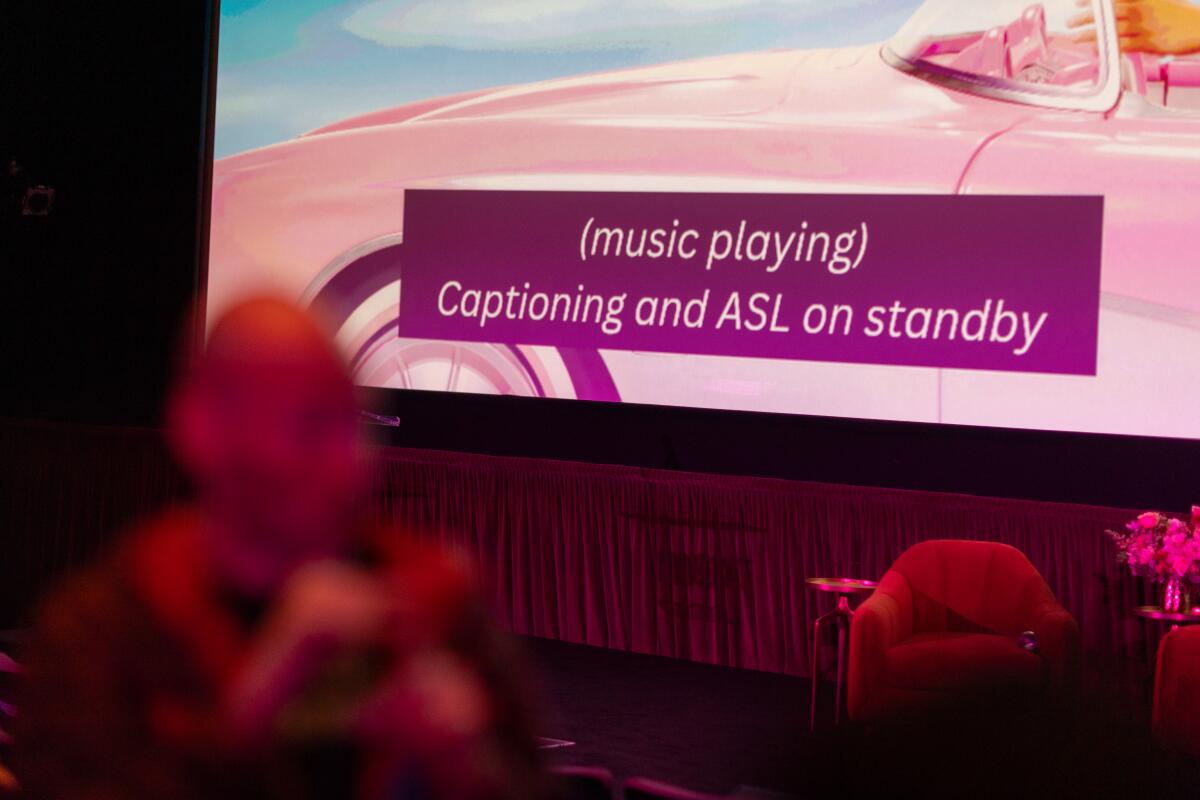Letters to the Editor: Captioning for movies and TV shows is a battle long fought by Deaf advocates

- Share via
To the editor: In 1978, the Greater Los Angeles Council on Deafness, along with two plaintiffs, filed a suit in a U.S. District Court asking for an injunction to prevent public television from broadcasting programs that were not closed captioned, based on the Rehabilitation Act of 1973. (“Captions took over TV. Why can’t they win the silver screen?” Jan. 10)
The suit was litigated by my grandfather, Abraham Gottfried.
Reading your article on movie theaters increasingly including captioning in their shows, I felt pride and astonishment. What my grandfather helped start seems to have gone mainstream.
Plaudits and admiration to all who have pursued captions on all media choices. My grandfather is smiling.
Rebecca Gottfried, Santa Monica
..
To the editor: Yes, the theater in Westwood does show open-caption movies. However, they are so seldom, sometimes at odd hours and never promoted.
As an older man with hearing problems, I find it hard to understand why showing subtitles on the screen is such a problem, especially with an increasing number of older people wearing hearing aids, to say nothing of the fact that theaters are ignoring a large customer base.
I would suggest that a lot of us older people grew up in a time when going to the movie theater was a weekly habit. And we have given up the habit, at least in part, because our hearing has deteriorated.
I spend a lot more of my money watching foreign films with subtitles at the nearby Laemmle theater.
Charles M. Weisenberg, Beverly Hills
..
To the editor: While I as a hearing-impaired person very much appreciate the captioning of movies and TV shows, I would like to remind theaters and readers of others, such as my wife, who still enjoy movies and need help.
They are the visually impaired.
Many streaming movies have audio descriptions that help people understand what is happening. I believe that all recent movies have this, but many theaters do not have the necessary equipment to make it available.
I would like to see widespread use of this technology.
David Reger, Claremont
..
To the editor: As an almost deaf person who relies on captions in theaters, I was delighted to see the article addressing this issue.
The cup-holder devices described in the article, while a blessing, are clunky and unreliable. Open captioning on the screen isn’t intrusive, as those who don’t need it can just ignore it. My friends who have no noticeable hearing loss use captioning at home all the time.
I do hope that theater operators will take notice — and sooner rather than later.
Jennifer Lee, Glendale
..
To the editor: More people use captioning because actors today speak too softly and mumble. I suppose they think it’s dramatic, but if the audience can’t understand you, what’s the point?
Ralph Tropf, Los Angeles






